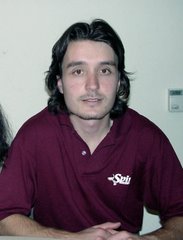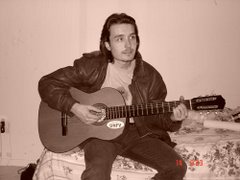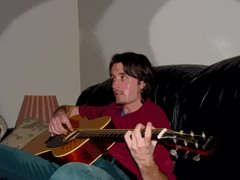It's been really a while since I wrote an e-mail and/or since I blogged for the last time.
Well, there have been a lot of changes in my life lately.
Last year in November I graduated with MA in International Relations and then I went with my brother to Bulgaria in December.
I came back to SA this week and my brother decided to stay there; in fact, Bulgaria influenced us both a lot.
In this regard, my visit to Bulgaria was indeed an amazing experience.
In fact, Bulgaria has changed a lot for these past five years since I went there for the last time.
It has become much more capitalistic and americanized; the young people are working hard, willing to make money and grow up in their careers and in general, the life has become much more dynamic and intensive.
I do not mean, however, that it is really easy for one to implement himself/herself in Bulgaria; in fact, the environment has become very competitive and the young people there are very well educated, talented and smart.
Just for a single position/job, you need to compete with really smart people.
Despite that, I saw that nowadays there are many opportunities for the young people in Bulgaria and some stand really a good chance to earn good money and grow up high professionally and in their careers.
For that reason, I decided to go back to Bulgaria and try to make a career there.
This is also what my brother decided to do; we came to the conclusion that at the moment we need to obtain some practical job experience and implement ourselves at the work-place and not just continue obtaining more and more degrees.
I felt quite challenged by the environment in Bulgaria and both the difficulties and opportunities it provides, so I made up my mind to go back there permanently in September this year.
In fact, I felt a little bit upset that I have been away from Bulgaria for the past seven years, I guess I miss my country, my environment and my people.
And above all, the GIRLS!!!!!!!!!!!!!!............................
But this would be another subject.
In fact, I am still not sure whether I would stay in Bulgaria for too long; I have also changed myself and I feel I need some time to adjust back to the environment there.
Well, I said to myself that if not in Bulgaria, then I would probably settle somewhere in Europe and this won't me a problem, because Bulgaria has already become an EU member and I can live, work and study in almost any country in Europe (or at least within the EU borders).
Well, let let the time show.
I hope that everyone is doing fine and I hope we will see each other soon!
As I said, I am still in SA at the moment and I am available for any meeting with the fellow participants in the "World of Work 2007".


